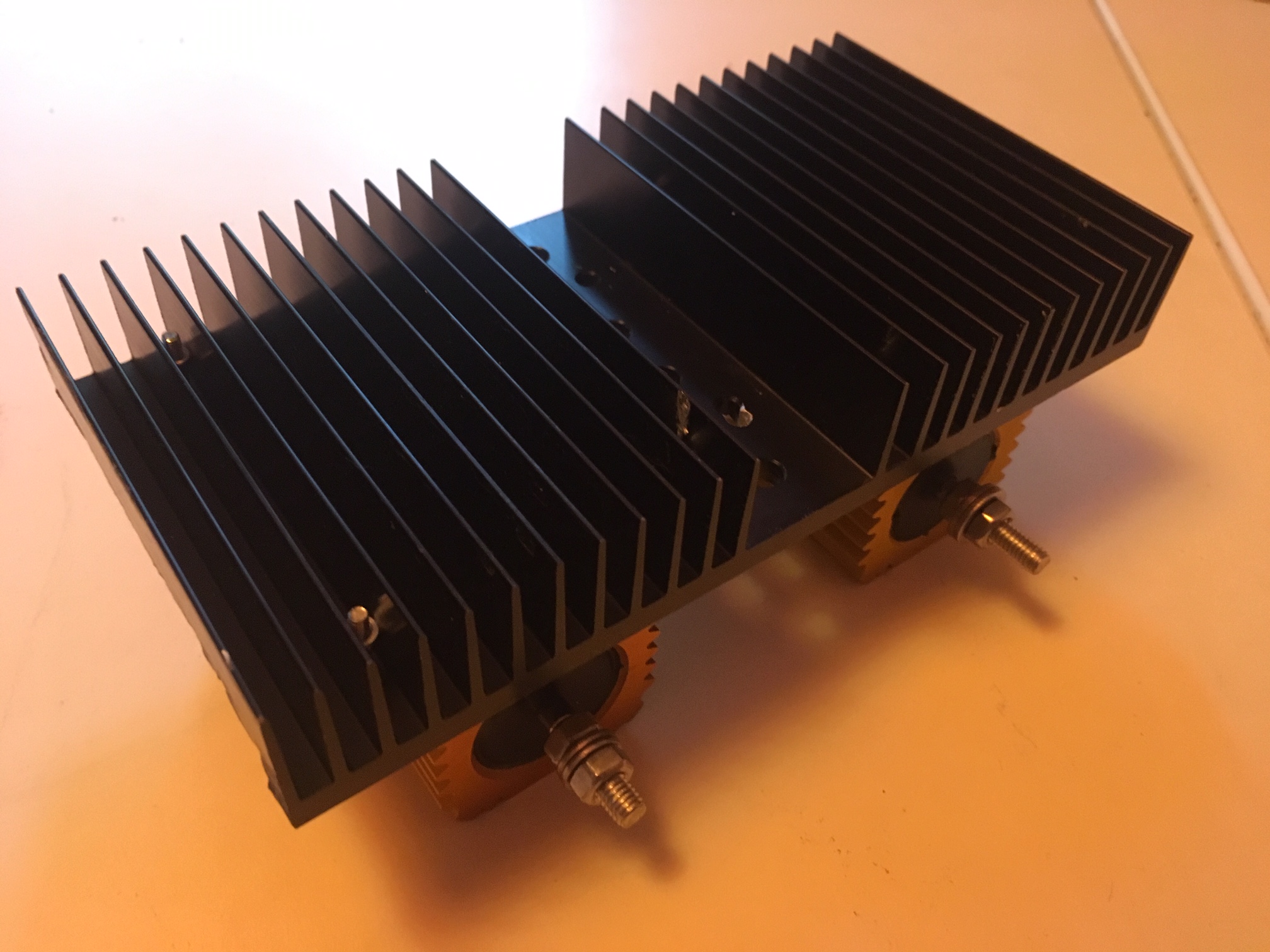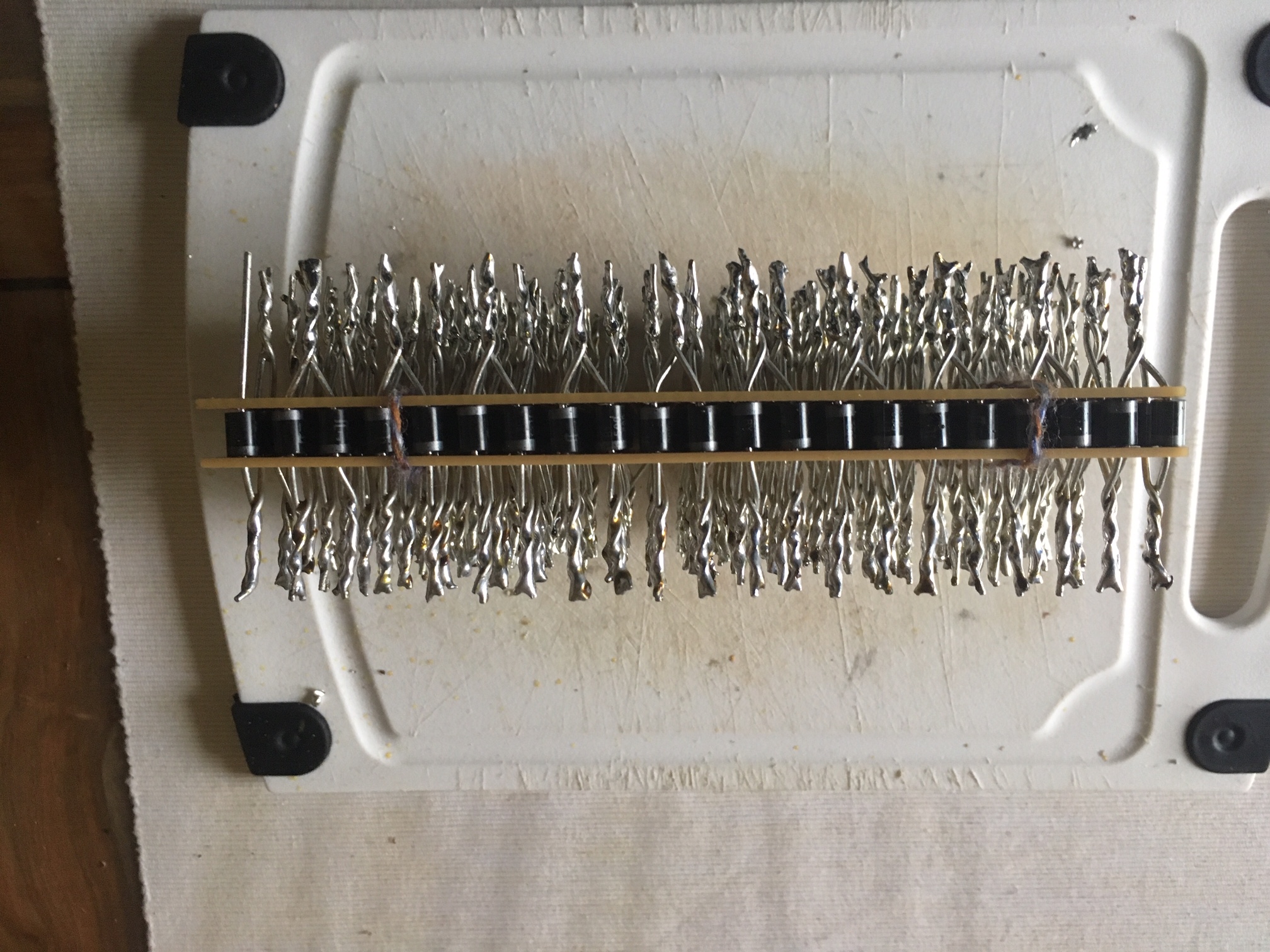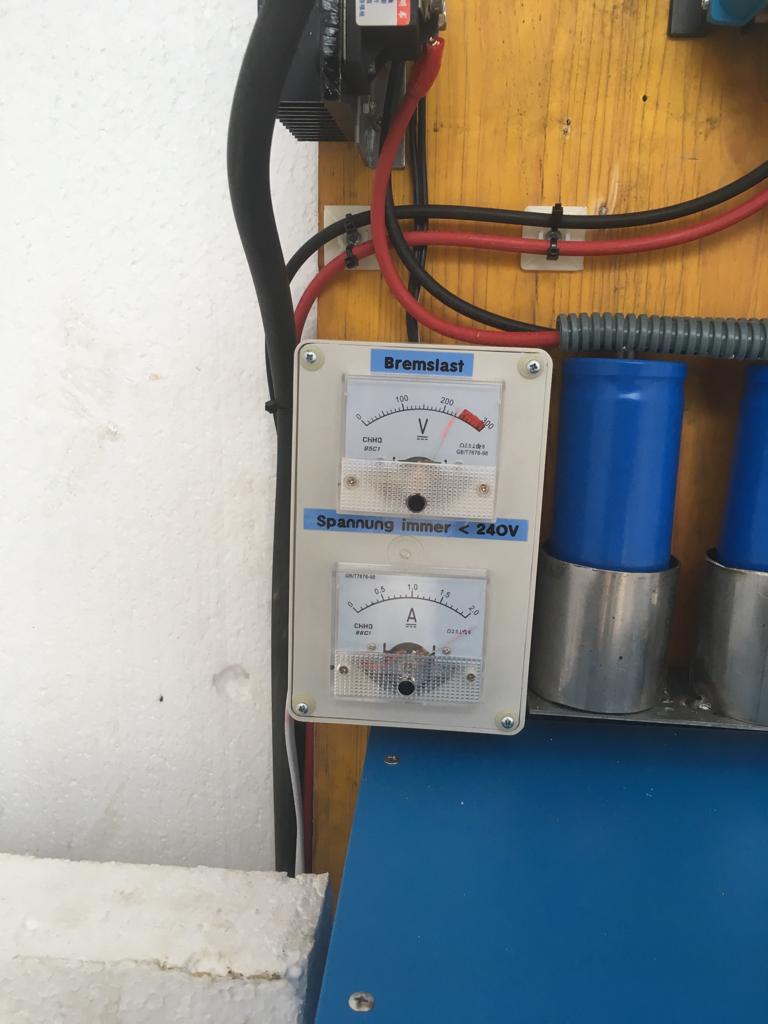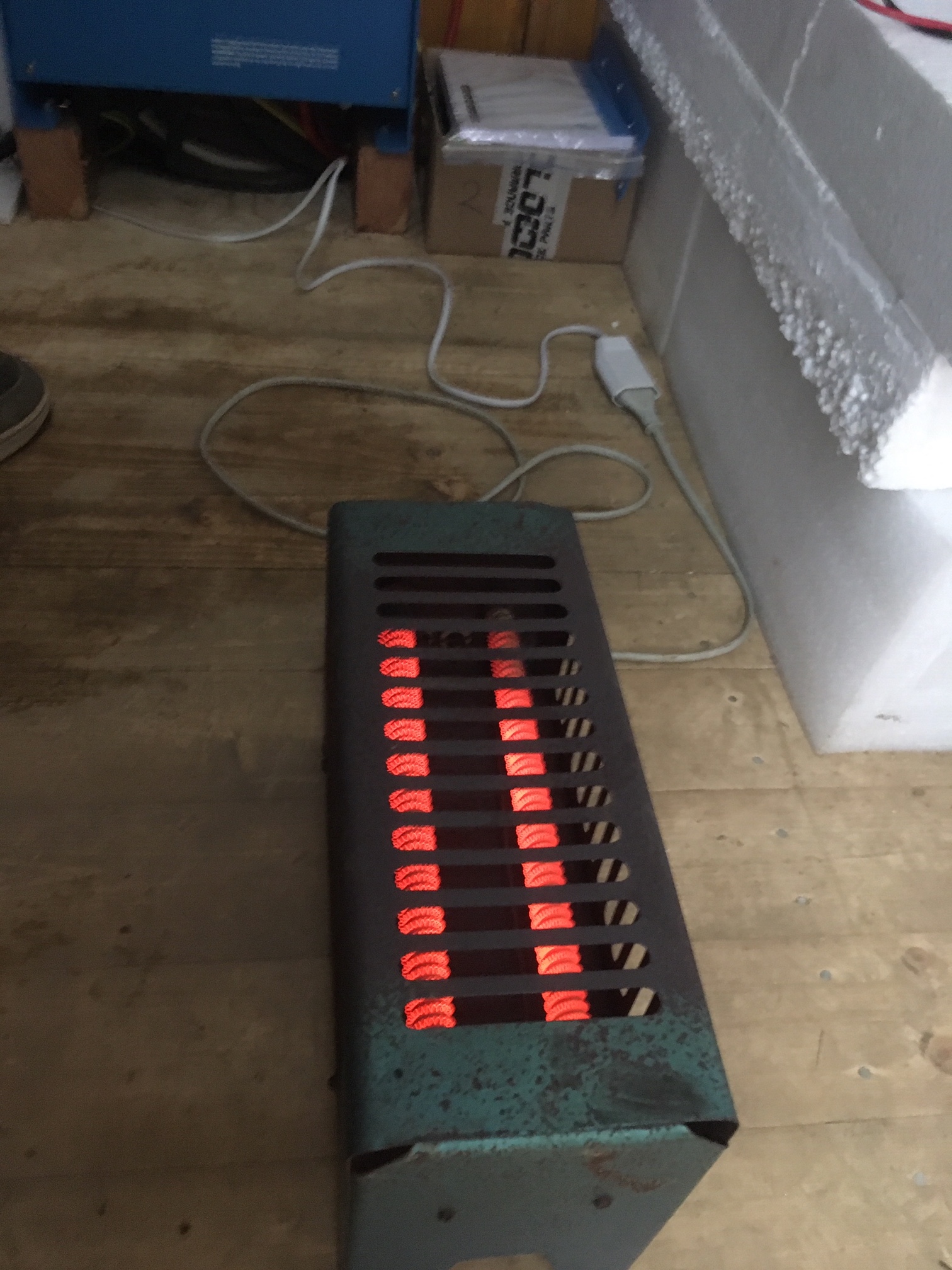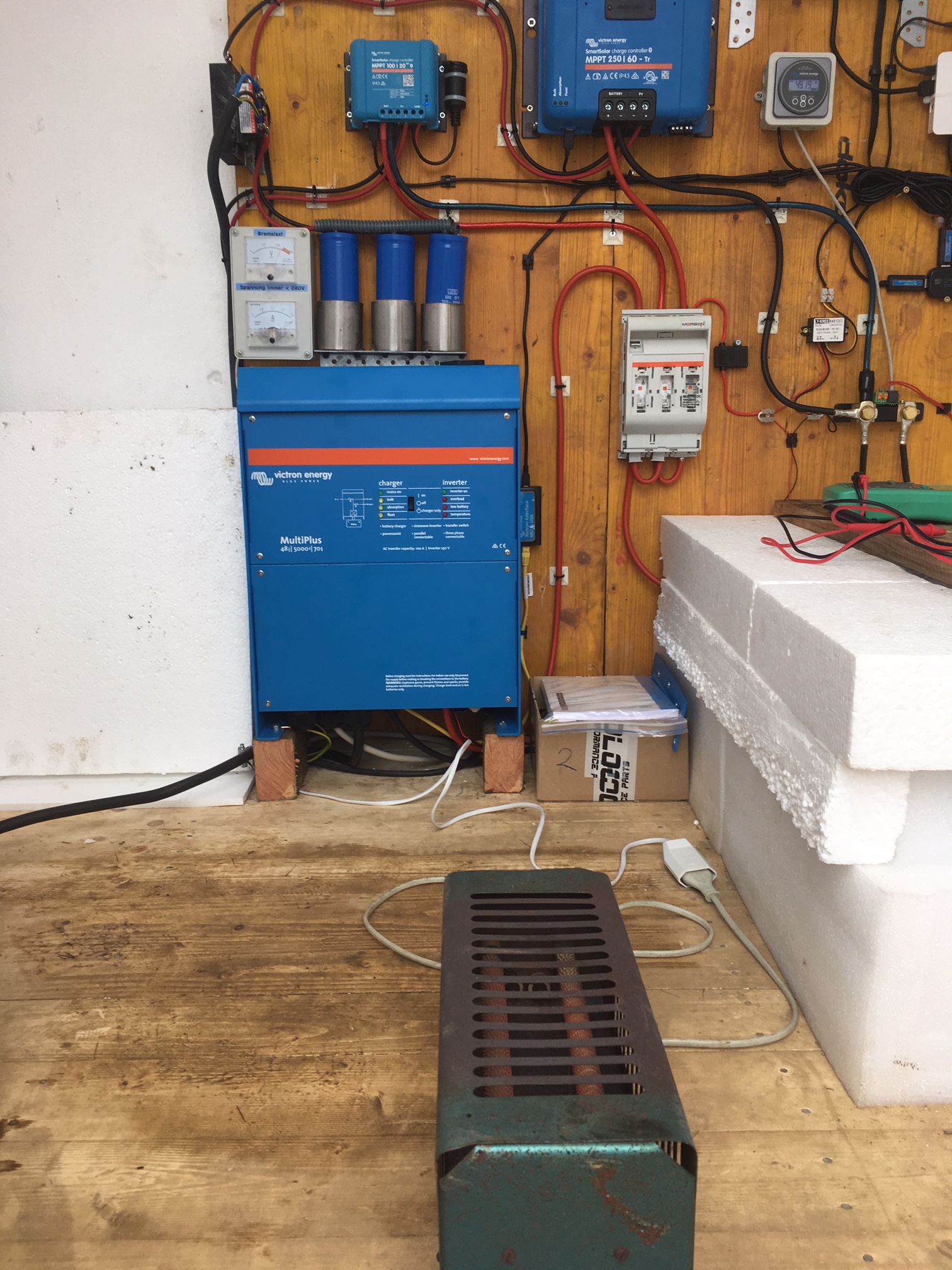Hi,
I know this question has nothing to do with Victron equipment in first place, but I think there are good electronics engineers around in this board, maybe someone can help me.
I have had a hydro power installation with a Victron MPPT Charge controller.
See: https://www.victronenergy.com/blog/2017/12/18/diy-ingenuity-hydro-power-in-the-austrian-alps/
Unfortunately, a heavy storm and the affiliated flood flushed it all away.
I'm just about to rebuild everything bigger and better now. You can read about it in a near future blog from John Rushworth, when it is finished.
The problem I am heading now is, that the open circuit voltage of my generator after rectification is above the maximum MPPT input Voltage of my charger.
My charger accepts a maximum of 250V and the Voc of the generator is 300V.
My conclusion is to find a solution to electrically brake the generator so the Voc stay safe below 250V
I have to put a 1Ampere load to the generator to brake it down to safely below 240V
I have 3 approaches to solve this, but I do not know which way to go.
1.) connect a power resistor in parallel to the generator to brake it
This would be the easiest way to solve this, but I will lose usable energy through the resistor.
I do not like this solution
2.) build a voltage stabilisation circuit with a transistor and a Z-diode that short circuits the generator at e.g. 230V and over to brake but does not apply below 230V.
This is the most complicated solution, but a good one I think.
The problem here is, that I would need some help to calculate the components of the circuit.
I am just not good enough to do this completely on my own.
3.) build a serial diode brake.
The approach here is, that a silicon diode is not conductive in transmission direction below 0.7V
You can get 5A silicon rectifier diodes very cheap.
So when I solder 300 of them in serial and connect them in parallel to the rectified generator output, that should to the trick.
The diode characteristics would then be my generator "brake characteristics"
This is a bit of a dump solution but I do like it. The cost of 300 diodes would be around 30€.
The idea behind posting this here is, that maybe someone has a better idea.
I would tend to go and solder some diodes. :o)
Thanks,
Markus


